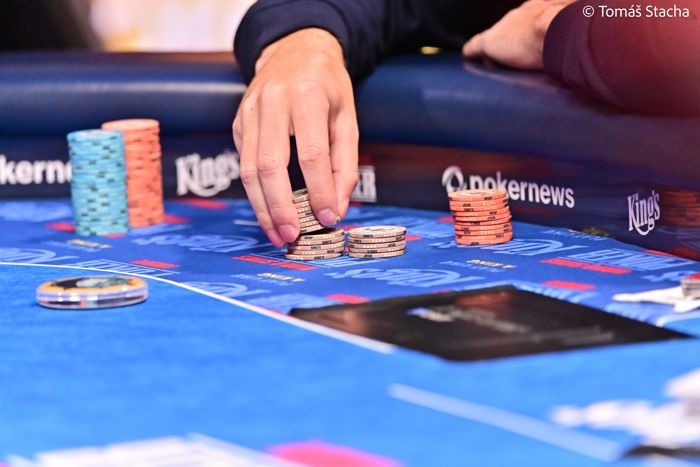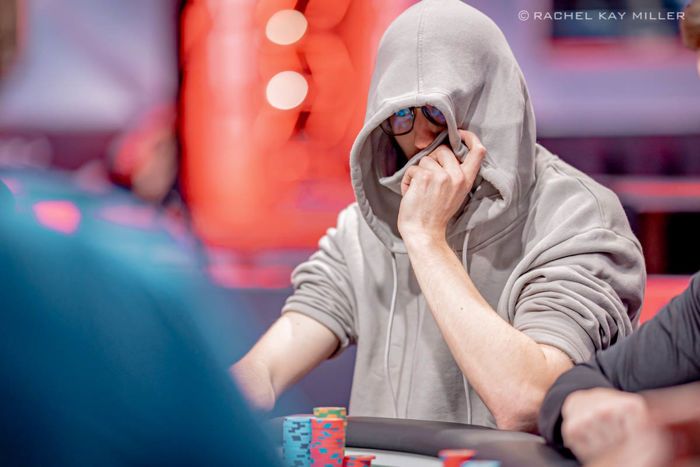
Unlock the Power of Poker Tells: Vital Skills for New Players in Texas Hold’em
Cracking the Code: How to Decode Poker Tells for Strategic Advantage
What is a Tell in Poker?
A poker tell refers to any physical, verbal, or behavioral cue exhibited by a player during a game, inadvertently revealing information about the strength of their hand. These cues can be conscious or unconscious gestures, such as changes in posture, speech patterns, eye movements, or betting behaviors.
Tells may provide opponents with hints about a player’s confidence in and the quality of their hand. Some tells can give you information on whether an opponent is bluffing or whether they have a really strong poker hand.
Mastering the interpretation of these subtle signals allows astute players to gain insights into their opponents’ likely actions, enhancing decision-making and strategic advantage in the dynamic game of poker.
Top 5 Most Common Poker Tells
Poker tells come in all sorts of shapes and (bet) sizes, and below are some examples of the most common tells in poker. Make sure to read the explanations provided to get a better understanding of how they work.
- Eye Contact
- Time to Act
- Handling of Chips/Cards
- Attentiveness
- Table Talk
Eye Contact

In poker, eye contact can display a player’s confidence or discomfort. Avoiding eye contact might signal weakness or nervousness, while prolonged stares might be an attempt to intimidate or mislead opponents.
Poker pro Daniel Negreanu is also a big proponent of eye contact being a useful tell. If a player likes a flop, for example, their eyes will quickly glance down at their chips, which is an indicator that they like their hand and want to build up the pot.
Time to Act
The time a player takes to act reflects decision-making. Quick decisions might signal a strong hand or eagerness to bet, whereas prolonged delays could suggest uncertainty or strategic planning for a bluff.
Handling of Chips/Cards

Subtle actions, like nervous chip shuffling or hesitation when handling cards, can indicate insecurity or a lack of confidence. Conversely, swift and controlled movements often accompany a strong hand.
Attentiveness
Players’ attention towards the game speaks volumes. Lack of focus or distractibility might reveal disinterest, potentially signaling a weaker hand. Conversely, intense focus can indicate a strong hand or a player plotting their next move.
Table Talk
Verbal clues in poker conversations provide valuable insights. Offering excessive information might signal nervousness or an attempt to mislead opponents. Silence, or specific topics, may imply a player’s confidence or discomfort with their hand. Identifying and decoding these verbal cues adds depth to understanding opponents’ strategies and hands.
How to Hide/Avoid Giving off Your Tells
In poker, it’s super important to keep a straight face and not give away any hints about your cards. But it’s just as key to watch others closely to figure out what they might have. Hiding your own clues and catching theirs gives you a big edge in the game. It’s like a secret weapon for winning at poker.

Be Aware of How You Act When Betting
It’s crucial to pay attention to your betting actions in poker because they might give away the strength of your hand. Staying consistent in your moves helps keep your strategy under wraps. Being mindful of your betting style prevents opponents from getting hints and helps you stay ahead in the game.
Bad players may put chips into the pot in a certain way when they have a strong hand and then do it differently when they’re bluffing.
Be Aware of Timing Tells
Knowing about timing tells in poker matters a lot because how fast or slow someone makes their moves gives hints about their cards. Quick actions might show they’re confident, while waiting could mean they’re unsure.
If you find that you’re acting faster when you’re strong, you should just wait a few more moments before making your action.
Avoid ‘Acting’ in a Hand
It’s best not to overdo actions when playing poker because pretending too much might show others what you’re up to. If you act too much, it can make things obvious and let opponents figure out information about your cards or plans, making it harder to win.
A famous example is Hollywood Star Matt Damon at the World Series of Poker. The acting skills on display are more like what you’d see at a local theatre rather than from someone with multiple Academy Awards.
Try to be Stoic
Remaining stoic in poker is crucial as it prevents revealing emotions that could give opponents insights into your hand or strategy. A calm, composed demeanor conceals intentions, making it harder for others to predict your moves, maintaining a strategic advantage and control over the game.
Final Thoughts
These five types of tells all come from live poker, although you should know that tells can sometimes be worth seeking out when playing real money online poker, too. For some examples, see Nathan Williams‘ article titled “7 Ways to Get Better Reads When Playing Online Poker.”
Some players give off tells unwittingly, but there are also players who will deliberately “act” at the table in an effort to deceive opponents with “false tells.” That means with all of the tells discussed above, you might encounter players exhibiting the tell in an effort to indicate the opposite of what it normally might signify.
For instance, a player might hold his cards in a way that makes it look like he’s about to fold, encouraging you to bet, but then stay in the hand and put in a raise. Also, take heed of that point about looking for patterns first before jumping to conclusions about an apparent tell.
Have you seen the player making eye contact on multiple occasions, then showing strong hands each time? That might make the eye contact tell more reliable the next time you see it. But if there’s no pattern against which to compare the action, be careful not to overvalue the tell.
Finally, especially for new players, it’s probably much better to pay attention to betting patterns than behavioral ones — those tend to be much more dependable indicators of players’ relative hand strength.
Poker Tells FAQs
- [Tags] cash game strategy tournament strategy beginner strategy no-limit hold’em tells psychology live poker
texas holdem poker

